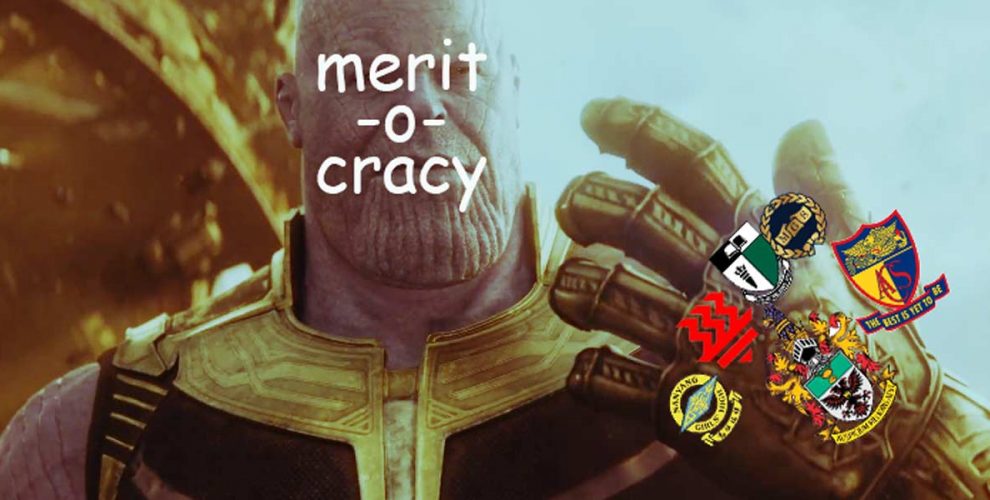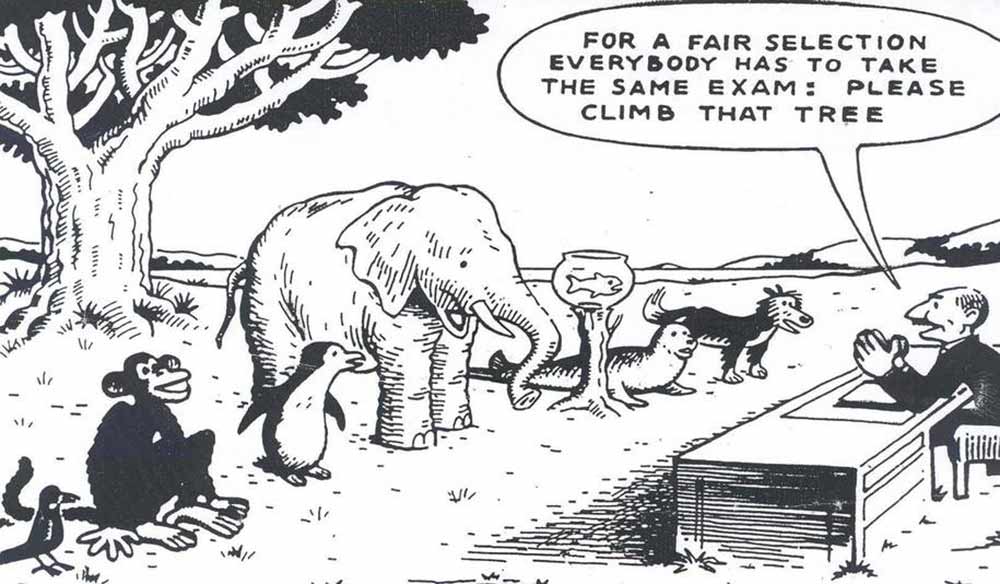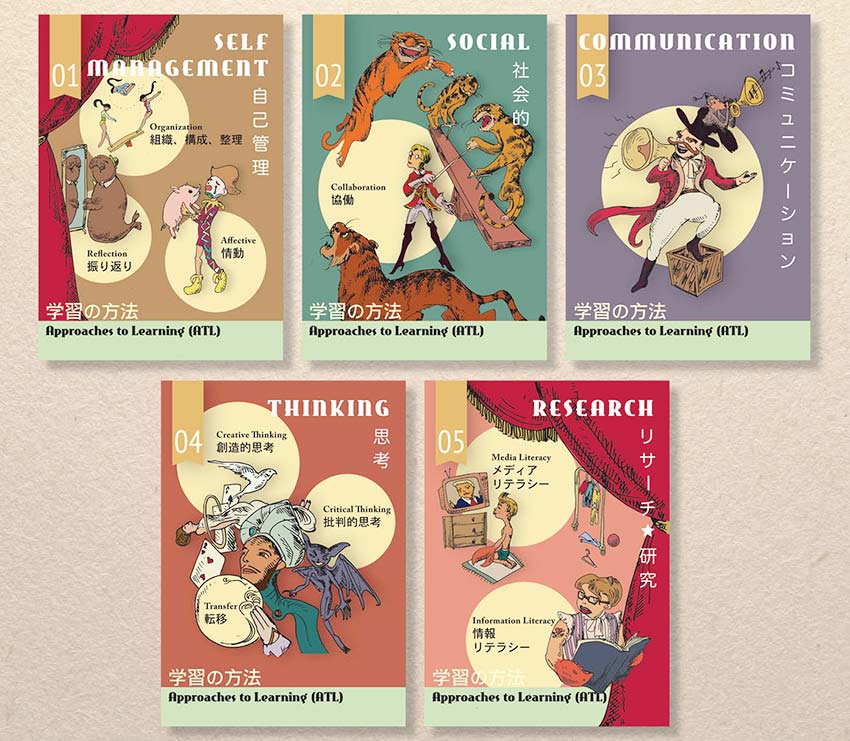Viral FB Note On Meritocracy In Singapore
Most people aren’t the mean girls from RGS that will say things like:
“People are poor because they don’t work hard enough.”
But elitism that exists in Singapore is subtler and disguised as meritocracy.
What is meritocracy?
Meritocracy—A social system, society, or organization in which people get success or power because of their abilities, not because of their money or social position. -Cambridge Dictionary Online.
Meritocracy is not bad per se. Like economic theories that require many conditions to be Ceteris Paribus (remaining the same), it just does not translate accurately in the real world where equality does not exist.
Many rich people live in the Bukit Timah area. This helps them enroll their kids into Nanyang Primary and Raffles Girls Primary—elite primary schools that funnel kids to coveted Raffles, Hwa Chong and Nanyang Girls.
Rich students are also able to hire the best tuition teachers to help them ace their exams. Elite schools tend to have strong alumni backing, which allows them to afford more luxury educational products that neighbourhood schools do not have access to.
Elite school privileges
MOE claims class size does not affect results. So why do elite schools tend to have smaller class sizes? Perhaps, they could find out by interviewing the many experienced teachers in Singapore instead of quoting overseas case studies.
Elite schools are more experienced in helping students apply for government scholarships. Take a look at this year’s crop of Presidential Scholars, the highest tier scholarship. They come from Raffles, Hwa Chong, and River Valley. All elite schools.
These scholars work their way up the civil service or army. They end up in coveted high positions like SMRT CEO, for example. In the military, we jokingly label a regular officer as being on a ‘scholar track’ or a ‘farmer track’. The farmers have to plough harder to climb higher.
This is how meritocracy turns into elitism. Those who can afford luxury educational boosts have more access to scholarships; the fast track to success.
Streaming is a necessary evil
A friend was in the Normal Academic (NA) stream growing up. He felt unhappy whenever he saw that Express stream students received the best teachers and resources. Subsequently, he became a teacher and understood why streaming is crucial.
“If you have a slow student in a class, you have to repeat a few more times. The faster students will definitely have to slow down for him,” he explains.
We have to allow students who want to excel to lunge ahead. But streaming speeds up the gap in the similar way the rich get richer and the poor get poorer.
What I learnt teaching in Japan
I spent a year implementing International Baccalaureate (IB) in a Japanese public school. It was the first of its kind. The class sizes were about 14. Armed with an iPad each, the students learnt how to sift through information and apply it, instead of just finding the right answers.
We instructed students to formulate their opinion, ask questions, research and use the information to apply it to their contexts. For example, if they researched something about weather patterns, they would proceed to see how the conditions in Hokkaido (where I was based) reflect the phenomena. And if it doesn’t, why not?
IB posters I designed for the Japanese school I taught in
IB education emphasises values, not knowledge. The posters above show the approaches to learning that students should master when they graduate. These are all critical thinking skills that can apply to all situations and stages of life. Currently, IB education is only available in elite schools in Singapore because it is expensive to implement. It is not without its faults, but offers a more holistic solution.
I also observed that in Japan, the group is placed over the individual. Their team spirit is built from cleaning their classrooms together. And we witnessed how they come together to rebuild from WW2 and natural disasters.
Singaporeans on the other hand see their neighbour as someone stealing a piece of their pie—If that girl is number one, then I won’t be. The overemphasis on being better sidelines a collaborative spirit where everybody wins, by helping others to win.
Because students are constantly ranked to motivate them, they start to see each other as competitors instead of collaborators.
Create opportunities for the less academically inclined
In Singapore, we obsess over the right answers. Instead, we should provide students with the confidence and creativity to find their own solutions.
Skills like business and entrepreneurship, creativity, legal and financial knowledge, emotional intelligence, and street smartness are not a focus of the current system. But I have learnt that these are crucial to survive a rapidly changing world.
My editor tells me of a friend who started a successful side business breeding mealworms. Most straight ‘A’ JC graduates won’t have that type of entrepreneurial spirit. Unsurprisingly, he is a beng who loves techno music.
Trying to innovate, the fear of failure still leaves MOE clinging to its old values. A grades-based system allows MOE to placate its own fears of not being able to assess outcomes. Numbers help make learning that is by nature intangible, slightly more assuring.
Ironically, it is only with experimentation and failure that people can unravel their paths; not just parroting what they have been told. In that way, they find answers that are meaningful to themselves and remember it for life.
I scored A2 for my physics, but I merely memorised the question types and how to apply the formulas. I still don’t know how light and sound works. But that’s okay because those answers are not relevant nor meaningful for the life I am trying to build.
Meritocracy And Elitism Go Hand In Hand
Education Minister Ong Ye Kung expresses the paradox of meritocracy that inevitably leads to elitism.
We need to enable the bell curve conquerors, but we should also create opportunity for the less academically inclined to discover their gifts. For example, this guy defined his own success by giving tours in Geylang and providing haircuts for migrant workers.
Like Adele, we can be a fat lady and make it against the odds in a superficial music industry; provided we find the right songs to sing.
How have you experienced meritocracy or elitism? Write to us at hello@zula.sg.
Also Read:
Cover image: Source









